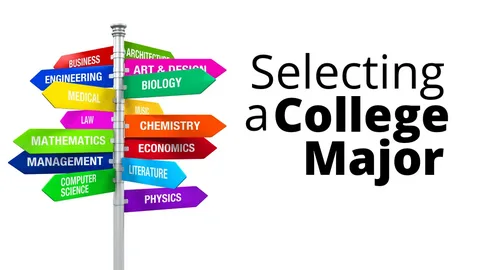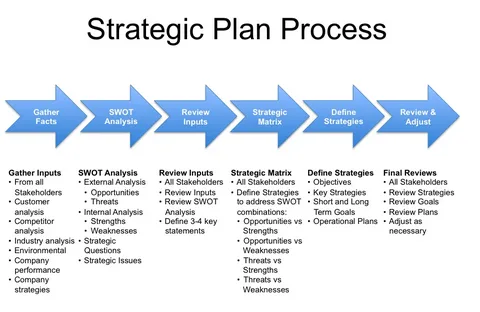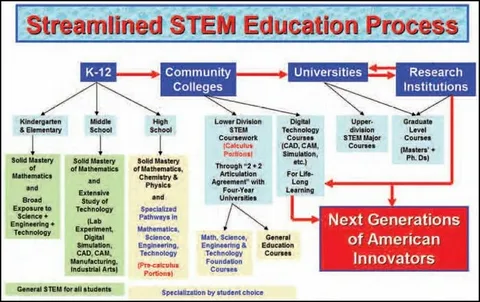Educational Goal and Major Change: A Guide
Outline
- Introduction The requirements for a better education and significant adjustments
- What Are Educational Goals?
- Why Set Educational Goals?
- Understanding Major Changes in Education
- Common Major Changes in Education
- How to Set Effective Educational Goals
- Strategies for Implementing Major Changes
- Examples of Educational Goal Setting
- FAQs
- Conclusion: Embracing Change in Education
Introduction: Why Talk About Educational Goals and Major Changes?
Are you feeling overwhelmed by the rapid changes taking place in the world of education?
- “Why do I need educational goals?”
- “What major changes are affecting my learning experience?”
- “How do I adapt to these changes effectively?”
These are genuine questions Many people are asking them.
Establishing specific objectives for your education will help you navigate modifications to your learning surroundings.
If you’re a student parent or teacher, learning what you need to do in order to establish goals as well as adjust to changing circumstances can be the most important thing.
Let’s take it apart and find out what you need to know about how you will navigate these waters of learning effortlessly.
What Are Educational Goals?

Educational goals are goals that will guide your learning process.
They assist you in focusing on what you’d like to obtain. What they usually include:
- short-term goals They can be achieved in a short amount of time for example, such as finishing an assignment or passing an exam.
- long-term goals They require more work and energy, like the completion of school or the degree.
Why Are Educational Goals Important?
- Direction Goals provide you with an easy path to follow.
- Motivation You’ll be motivated and excited to learn.
- Mindfulness goals can help you focus on the most important aspects of your education.
The idea of having goals in your education is similar to having a plan to follow your path. It helps you stay on the right path and lets you track your progress.
Why Set Educational Goals?
The setting of educational goals can alter how you learn. The reasons why they matter:
- Increases confidence When you create goals and fulfil targets, it increases confidence in yourself.
- encourages accountability Goals force you to be accountable for your education.
- Improves Performance If you have clear goals, you’ll be able to achieve better results.
Setting Goals: A Personal Path
As an example, when I set out to increase my marks, I set myself the goal of studying for a minimum of an hour a day.
It was initially difficult to adhere to, but I finally broke it down:
- The first week of the HTML0 course: emphasis on math concepts.
- Week 2 Review notes from the past.
Breaking it down into smaller steps allowed me to keep on track and to see my improvement.
That’s the great thing about educational goals. They help make the huge picture seem manageable.
Understanding Major Changes in Education
Education isn’t static. Significant changes can occur due to a variety of reasons.
- technological advances New tools and platforms could alter the way we learn.
- curriculum updates What the schools teach impacts students.
- Social shifts Social values are changing and influence the educational strategies.
Recognizing Major Changes
The biggest changes can be intimidating But they usually result in positive outcomes. What to look out for:
- Changes in the Learning Environment Are classrooms getting more electronic?
- New Methods of Teaching Do you see an evolution towards collaboration in learning?
- Revised Standards Do you know if educational benchmarks being revised?
Being aware of the changes will help you prepare and be ready to adapt.
Common Major Changes in Education
Let’s take a deeper look at the most common changes that are taking place in the field of education right now:
1. Integration of Technology
- Classrooms are embracing more electronic tools.
- Students make use of devices and internet-based resources to aid in learning.
2. Shift Towards Online Learning
- Online courses and online resources are becoming commonplace.
- Flexible schedules permit individual learning experiences.
3. mindfulness on Social-Emotional Learning
- Schools are focusing on emotional and mental health.
- Programs aid students in developing the ability to be resilient and empathic.
4. Emphasis on Critical Thinking
- The focus of education is shifting away from memorization of rote.
- Students are taught to think critically and to solve problems.
These changes can be overwhelming However, they also provide new opportunities for growth as well as learning.
How to Set Effective Educational Goals

Since we are aware of the importance of setting goals, how can you definitely establish goals? Here are some suggestions:
1. Be Specific
- In lieu of saying “I want to rise,” you can say, “I want to raise my math grade from a C to a B.”
2. Make Them Measurable
- Set goals you can keep track of, like “I will read one book per month.”
3. Keep Them Achievable
- Make sure your goals are achievable in light of your current capabilities and resources.
4. Set Relevant Goals
- Your goals should be aligned with your goals for education overall.
5. Time-Bound Goals
- Create dates to complete your goals, for example, “I want to finish this project by next week.”
Example of Goal Setting
Let’s say that your goal is to raise your writing abilities. Here’s how to breakdown the task:
- Special: “I want to write a 1,000-word essay.”
- It is a measurable: “I will write at least 200 words a day.”
- It is possible: “I’ll use my writing textbook as a guide.”
- Important: “This will help me in my English class.”
- Timing-Bound: “I will complete this essay in five days.”
This simple structure makes it easy to remain on the right track and attain your goals.
Strategies for Implementing Major Changes
Making major changes to education requires an approach that is proactive. Here are some ideas to think about:
1. Stay Informed
- Stay up to date with the latest developments that are happening in the learning environments you use.
- Learn about articles, take part in workshops, and take part in discussion.
2. Be Flexible
- Know that change is difficult but can also be advantageous.
- Be open to new techniques and tools.
3. Seek Support
- Speak to your teachers, classmates, or teachers about the challenges you’re experiencing.
- Create a support system for assistance and support.
4. Reflect on Your Learning
- Be aware of how the changes affect your education.
- Change your objectives and plans as necessary.
5. Celebrate Small Wins
- Recognize your accomplishments, regardless of how little.
- Recognizing achievements can boost motivation and boost confidence.
Change can be a challenge to implement, but when you have the right strategy, it could lead to a boost in education and personal growth.
Examples of Educational Goal Setting

Here are some real-world examples of goals for education:
Student A: Improving Math Skills
- Goal Objective: To raise the grade of math from a C to a B at the end of this semester.
- Strategy :
- Take advantage of additional lessons.
- You should study for one hour every day.
Student B: Enhancing Study Habits
- The goal Goal: To develop better habits of study for all subjects.
- approach :
- Create a weekly study plan.
- Make use of flashcards to help with revision.
Student C: Pursuing a Passion
- Goal: Create an online blog about your favorite hobby.
- approach :
- Write a post each week.
- Post on social media to get feedback.
These examples demonstrate that the educational goals can be adapted to meet the needs of each individual and their aspirations.
FAQs
1. What are the goals of education?
- Educational goals are specific goals that will guide your learning process.
2. What is the reason I should establish goals for my education?
- Setting goals gives direction and motivation and can improve performance.
3. What are some of the major changes to education?
- Common changes include the integration of technology online learning, integration of technology, and a focus on emotional learning.
4. How do I set efficient educational goals?
- Be clear, specific, measurable pertinent and time-bound when setting goals. They should be time-bound, relevant, and specific.
5. How can I adjust to the changing requirements of education?
- Be aware, flexible, and get help Learn from your mistakes, reflect on what you have learned and celebrate the small victories.
6. Do educational goals aid in making significant shifts?
- Yes, goals for education can provide an outline of changes and also keep you focused on the things that matter.
7. Can I modify my goals in school?
- Absolutely! It’s normal for you to change your goals when your requirements and situations alter.
8. How do I remain motivated in the face of significant shifts?
- Remind yourself regularly of your goals, solicit assistance from your friends and family, and be proud of your accomplishments.
9. What is the role of teachers in establishing objectives for education?
- Teachers can guide students to set achievable and relevant objectives, giving advice and support along the way.
10. How do I gauge my progress towards my objectives?
- Review your progress regularly and reflect on the things that are working, and then adjust your methods as necessary.
Conclusion: Embracing Change in Education
Making sense of educational goals and big modifications can be overwhelming However, it’s also a chance to grow.
The setting of clear goals helps keep you motivated and focused While understanding the changing nature of education can help you become an even more resilient student,.
Remember that it’s all about making small steps towards big dreams.
If you have the right mindset and strategy, you’ll be able to take on challenges and transform them into opportunities.
Let’s continue pushing forward, learning, and improving our lives as a community.
Your educational path is entirely yours to determine; therefore, go out and get it done!
With this guide, you’re equipped to tackle your educational goals while embracing major changes. What’s your next goal? How will you adapt to the changes ahead? Share your thoughts and let’s inspire each other!




